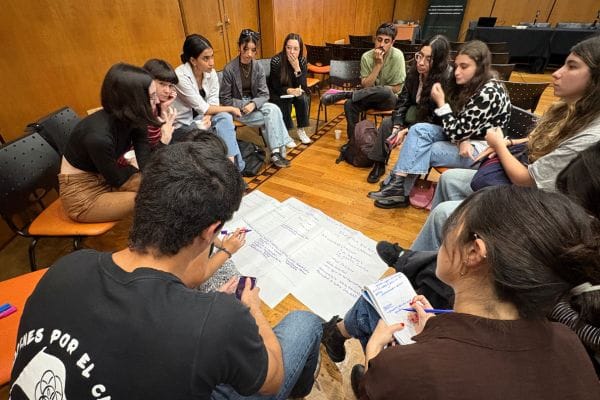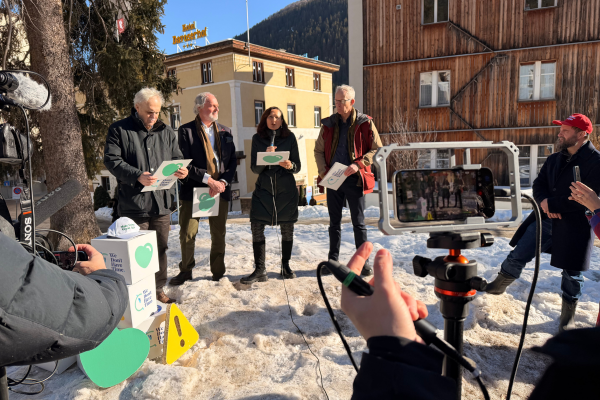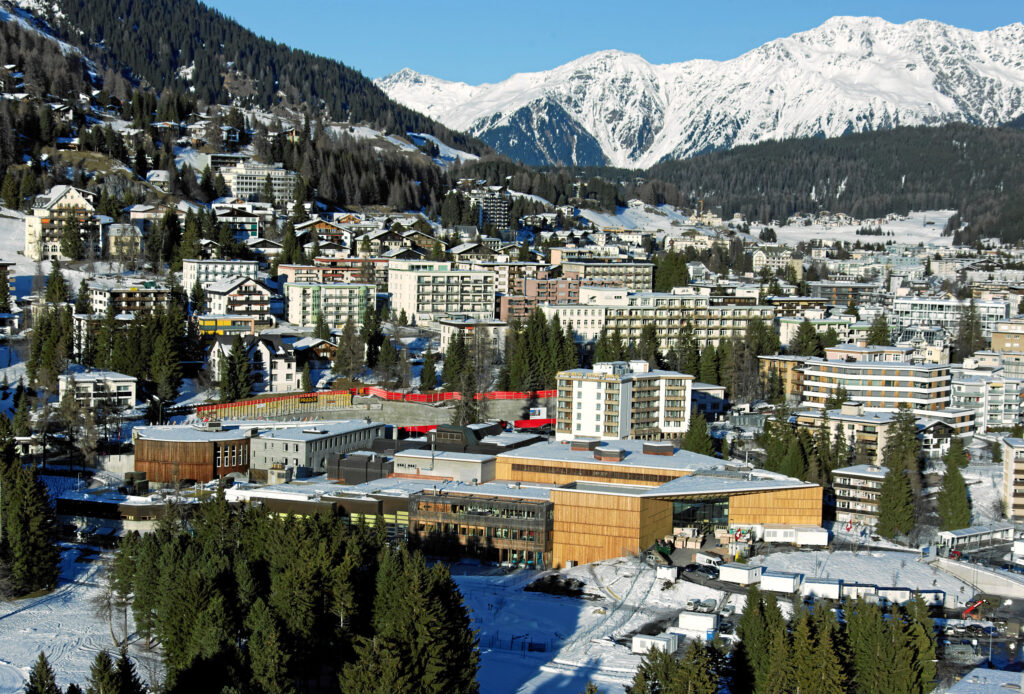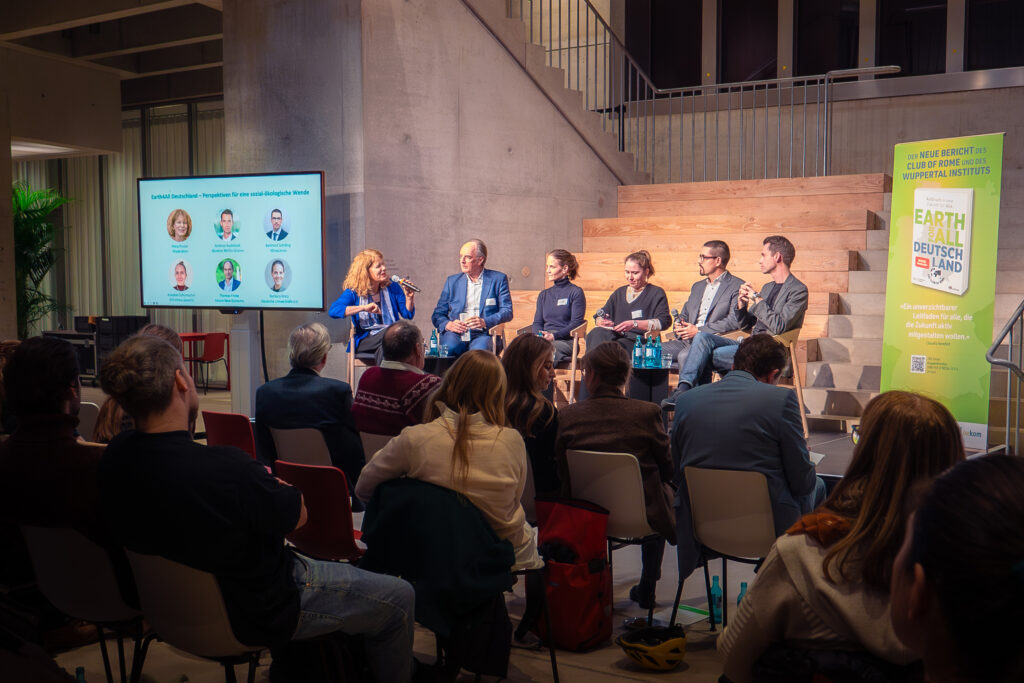On 9 May, young people between the ages of 18 and 30 gathered simultaneously in Córdoba, Buenos Aires, and Tucumán to take part in the workshop “Understanding the present to build the future we want,” part of the Earth4All Argentina National Engagement Strategy led by the Club of Rome – Argentinian Chapter.

Organised in collaboration with Fundación Alimentaris and Jóvenes por el Clima, the workshop was part of the participatory process of the National Participation Program (NEP), an initiative aimed at gathering diagnostics, experiences, and proposals from local communities to influence public policy. Its goal is to collectively adapt the international Earth4All model to local realities. The model warns of the urgent need to move away from the current path, described as “Too Little, Too Late,” and to move toward a “Giant Leap” centred on social and environmental justice. This transformative agenda is structured around five turnarounds: eradicating poverty, reducing inequality, empowering women, transforming food systems, and driving the energy transition.
The workshop brought together university students from the host cities, grassroots and environmental activists, and civically engaged youth eager to influence local policies and practices. Facilitated by Jóvenes por el Clima, the event was organized around two main dynamics: first, introducing the foundations and challenges of the Earth4All model; and second, mapping specific local issues and working in thematic groups aligned with the model’s five pillars, with the aim of co-creating concrete proposals grounded in the experiences and voices of young people.
The need for collective action
Each location presented its own specific characteristics and tensions, but a shared awareness emerged across all sites: the urgent need for collective action and for transforming local realities through active youth participation.
In Tucumán, the event was held in the Provincial Legislature and attended by 20 to 30 participants. Discussions revolved around the links between the climate crisis and structural inequality. Young people emphasized that unequal access to basic rights—such as clean drinking water, sanitation, electricity, decent work, and food—reflects a deep systemic failure that hits marginalised communities hardest. Yet the conversation did not focus solely on deficits; it also highlighted local forms of resistance and innovation. Community-led projects focused on renewable energy, food sovereignty, and waste management offered alternative pathways showing how autonomy and sustainability can be built even in adverse contexts.
Participants agreed that these grassroots initiatives must be strengthened and scaled up through public policy to ensure their continuity and broaden their impact. In the face of climate denialism and growing public distrust in government intervention, Tucumán’s youth emphasised the need to raise their voices and challenge dominant narratives, building new collective stories and action.
Exploring the structural drivers of local problems
In Córdoba, the workshop was held at the Faculty of Exact, Physical and Natural Sciences at the National University of Córdoba, with 25 participants from academic, social, and environmental backgrounds. Discussions centred on a critical assessment of the province’s dominant extractivist and productive model, seen as a structural driver of multiple social and environmental problems. Young people pointed out that this model creates “enclave economies” marked by monopoly concentration and inequality, with direct consequences such as unemployment, pollution, and worsening living conditions.
One of the most pressing concerns was the environmental and social toll on neighborhoods like Ituzaingó, where contaminated land from industrial waste has led to severe public health risks. In response, participants proposed the creation of a pilot urban planning program prioritising environmental and social health. This would include rigorous health studies, environmental impact assessments, and guaranteed access to basic services. They also stressed the urgency of transitioning to a more self-sufficient and sustainable productive and energy model that centers communities and their rights.
In Buenos Aires, the workshop reflected the contradictions of an urban context shaped by individualism, distrust, and skepticism toward collective transformation. Nonetheless, it also revealed the political and environmental commitment that many young people continue to uphold despite these challenges. Key issues raised included the housing crisis, job insecurity, and the deterioration of the public education system. Participants identified gentrification, real estate lobbying, education budget cuts, and barriers to first-time employment as symptoms of an exclusionary urban model that deepens inequality.
The importance of collaboration
Despite this diagnosis, the youth present expressed determination and hope. One participant captured this spirit with a powerful statement: “When you commit to the struggle, pessimism stays behind.” The group emphasised that building a greener, more inclusive, and liveable city depends on genuine collaboration among social organisations, the state, and civil society, aiming to transform the structures that perpetuate exclusion.
Far from viewing young people as passive subjects who “need to get involved,” the workshop acknowledged a generation that has long been organising in response to state neglect, the commodification of public goods, and systemic exclusion. The space provided an opportunity to make those voices and experiences visible, to connect them, and to amplify them in an increasingly hostile context.
The proposals and conclusions that emerged from the three provinces will be incorporated by the Club of Rome and Fundación Alimentaris into the National Participation Program’s constructive dialogues, with the aim of ensuring that youth input contributes meaningfully to the design of public policies and projects.
The Club of Rome Argentina highlights that the workshop fostered diverse perspectives and strengthened a youth network committed to building a future that is already underway—through collective action and the protection of all forms of life on this planet.
At a time when social and environmental crises are deepening, this initiative shows that young people are not just aware of the challenges—they are ready to lead the transformation. The real challenge is to listen to them and make room for their voices in the creation of truly transformative public policies.
Learn more about Earth4All Argentina on the Club of Rome Argentinian Chapter’s website.



